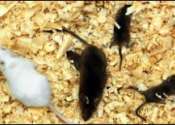Engineers reprogram yeast cells to become microscopic drug factories
Since antiquity, cultures on nearly every continent have discovered that certain plant leaves, when chewed or brewed or rubbed on the body, could relieve diverse ailments, inspire hallucinations or, in higher dosages, even ...








